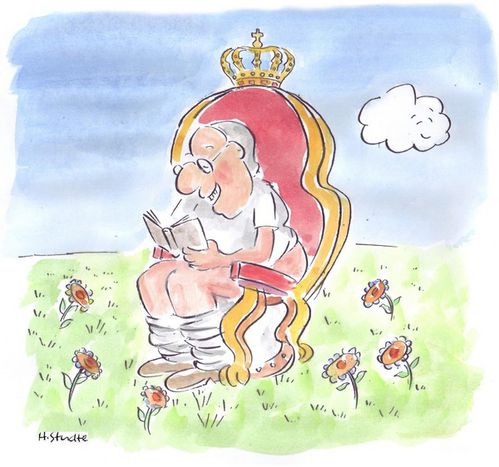
'Little boy’s room'
Published on
Translation by:
Sarah TruesdaleToilet, lavatory, restroom: what do you call the 'loo' in your language?
Languages seem to compete to be the most ingenious when it comes to using euphemisms for certain topics. Death and sex are among these subjects … in general, anything to do with the body is never tackled head on. So how can you discreetly slip away to faire ce que personne ne peut faire a notre place  (to do what no-one else can do for you), as the French say, and how is this expressed in different languages?
(to do what no-one else can do for you), as the French say, and how is this expressed in different languages?
Americans say that they are retiring to the ‘restroom’  : a room which becomes the WC
: a room which becomes the WC (water closet) for the French and Hungarians (toilettes, plural). Those from French-speaking Quebec, in all humility, prefer the singular form, and go to la toilette
(water closet) for the French and Hungarians (toilettes, plural). Those from French-speaking Quebec, in all humility, prefer the singular form, and go to la toilette  . The French also apparently gifted the English with the word loo
. The French also apparently gifted the English with the word loo  . During the Middle Ages, French servants emptied bedpans out of the window by screaming regardez l'eau ('watch out for the water!'). The English kept that in mind, by keeping the word gardyloo which has today become 'loo'.
. During the Middle Ages, French servants emptied bedpans out of the window by screaming regardez l'eau ('watch out for the water!'). The English kept that in mind, by keeping the word gardyloo which has today become 'loo'.
Back in France, the toilet was the only place where French kings went on their own: the ultimate proof of the need for contemplation which such an activity assumes. In fact, after Louis XIV set the example, successive kings of France were accompanied to the bathroom by their court after giving the merest gesture or nod. Whereas in France, you went là où le Roi va sans sa suite  (where the king went without his retinue), in Polish, His Majesty iść tam gdzie król chodzi piechotą
(where the king went without his retinue), in Polish, His Majesty iść tam gdzie król chodzi piechotą  (powdered his nose). The Spanish have been royally inspired too: they hacer una visita al señor roca
(powdered his nose). The Spanish have been royally inspired too: they hacer una visita al señor roca  or go to see Mr Roca - the biggest manufacturer of Iberian thrones.
or go to see Mr Roca - the biggest manufacturer of Iberian thrones.
A taboo still remains today, as even in Esperanto a euphemism is used: the toilet is called necesejo (the necessary place). French author Molière called it the petit coin  (the little corner), whilst in the language of German poet Goethe, the expression calm corner is used; you can even call it the privy
(the little corner), whilst in the language of German poet Goethe, the expression calm corner is used; you can even call it the privy  as the Scottish do.
as the Scottish do.
Translated from Grands secrets du petit coin



